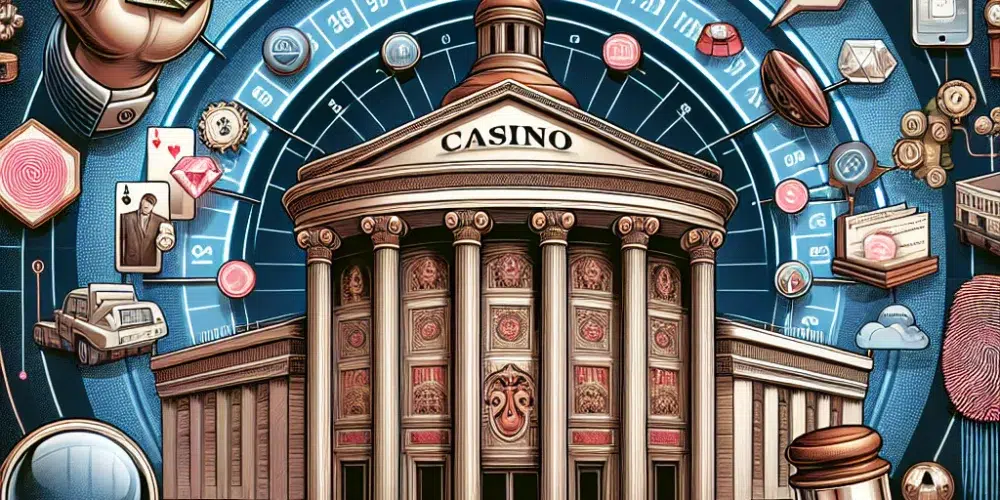Significant Regulatory Changes in the Global Gambling Sector
In the past week, several countries have introduced substantial changes to their gambling regulations, impacting casino operations and gambling practices worldwide. This shift marks a critical development in the global gaming industry, with a mix of tighter controls and liberalizing reforms aimed at balancing economic benefits with social responsibilities.
Overview of Regulatory Updates
Countries such as Japan, Brazil, and the United States have unveiled reforms that modify how casinos and gambling activities are managed within their jurisdictions. Japan has finally set the stage for the opening of its first integrated resorts, while Brazil has moved to legalize certain forms of online gambling. In contrast, the United States has tightened advertising guidelines for sports betting.
Impact on Local Economies and Casino Operations
These regulatory changes have a direct impact on local economies, potentially creating thousands of jobs and contributing significantly to economic growth. However, they also pose challenges for casino operators who must navigate these new laws effectively to remain compliant and competitive.
Economic Benefits
In Japan, the introduction of integrated resorts is expected to boost tourism significantly, with projections suggesting millions of additional visitors each year. “The ripple effect on the local economy will be tremendous. From hospitality to retail, everyone stands to gain,” notes Hiroshi Tanaka, a Tokyo-based economic analyst.
Challenges for Casino Operators
Conversely, operators in Brazil and the U.S. are scrambling to adjust their marketing strategies and operational frameworks to align with the new regulations. Compliance costs and the need for robust responsible gambling measures have surged, with casinos investing heavily in new technologies and training programs.
Technological Innovations Sparked by Regulatory Changes
To comply with stringent regulatory demands, casinos are increasingly turning to technological solutions that enhance transparency and facilitate responsible gaming practices. Innovations such as facial recognition to detect problem gamblers and AI-driven data analytics to monitor betting patterns are becoming commonplace.
New Tools and Applications
“By integrating advanced AI algorithms with our security systems, we can now identify and intervene in cases of risky gambling behavior more effectively than ever before,” comments Sarah Jennings, a security manager at a Las Vegas casino.
Public and Player Reactions
The response from the public and the gambling community to these regulatory changes has been mixed. While some applaud the increased safety measures and economic prospects, others are concerned about the potential for increased gambling addiction and loss of privacy.
Community Feedback
Local community groups, especially in urban areas slated for casino development, have voiced both support and concerns. “We welcome the jobs and infrastructure investment,” says John K. Lerner from a community watchdog in Osaka. “However, we remain vigilant about the social costs that could arise.”
Player Perspectives
Regular casino-goers and sports bettors have also reacted to the changes with a mix of excitement and caution. Many are looking forward to enhanced betting options and more luxurious facilities, while also wary of the potential for increased surveillance and regulation of their activities.
Key Takeaways
This week’s regulatory changes across multiple countries signify a dynamic period of adjustment for the global gambling industry. While the economic benefits are clear, the full impact of these reforms on social issues like gambling addiction and personal privacy remains to be seen.
FAQs
What countries have implemented major gambling regulatory changes recently?
Japan, Brazil, and the United States have all announced significant reforms in their gambling regulations.
How will these changes affect job creation in the affected areas?
The opening of new casino facilities and expansion of gambling activities are expected to create thousands of jobs, boosting local employment levels significantly.
What are some technological innovations being adopted by casinos now?
Casinos are using technologies such as facial recognition and AI-driven analytics to ensure compliance with regulatory requirements and promote responsible gambling.
The recent regulatory changes in the gambling sector underscore a global trend towards the reimagination of gambling not just as a leisure activity but also as a significant economic driver that necessitates careful regulation to mitigate its potential social costs. As the industry continues to evolve, it will be crucial for stakeholders to balance growth with social responsibility.

David Garato is a luminary in gaming journalism, renowned for peeling back the curtain on the gaming world with his witty and insightful commentary. A decade into weaving stories from the pixelated edges of indie games to the expansive universes of AAA titles, David’s work is a thrilling blend of analysis and adventure. When not writing, he’s live-streaming, sharing his gaming exploits with an engaged and growing audience. David doesn’t just write about games; he lives them, making him a trusted guide in the gaming community.
















